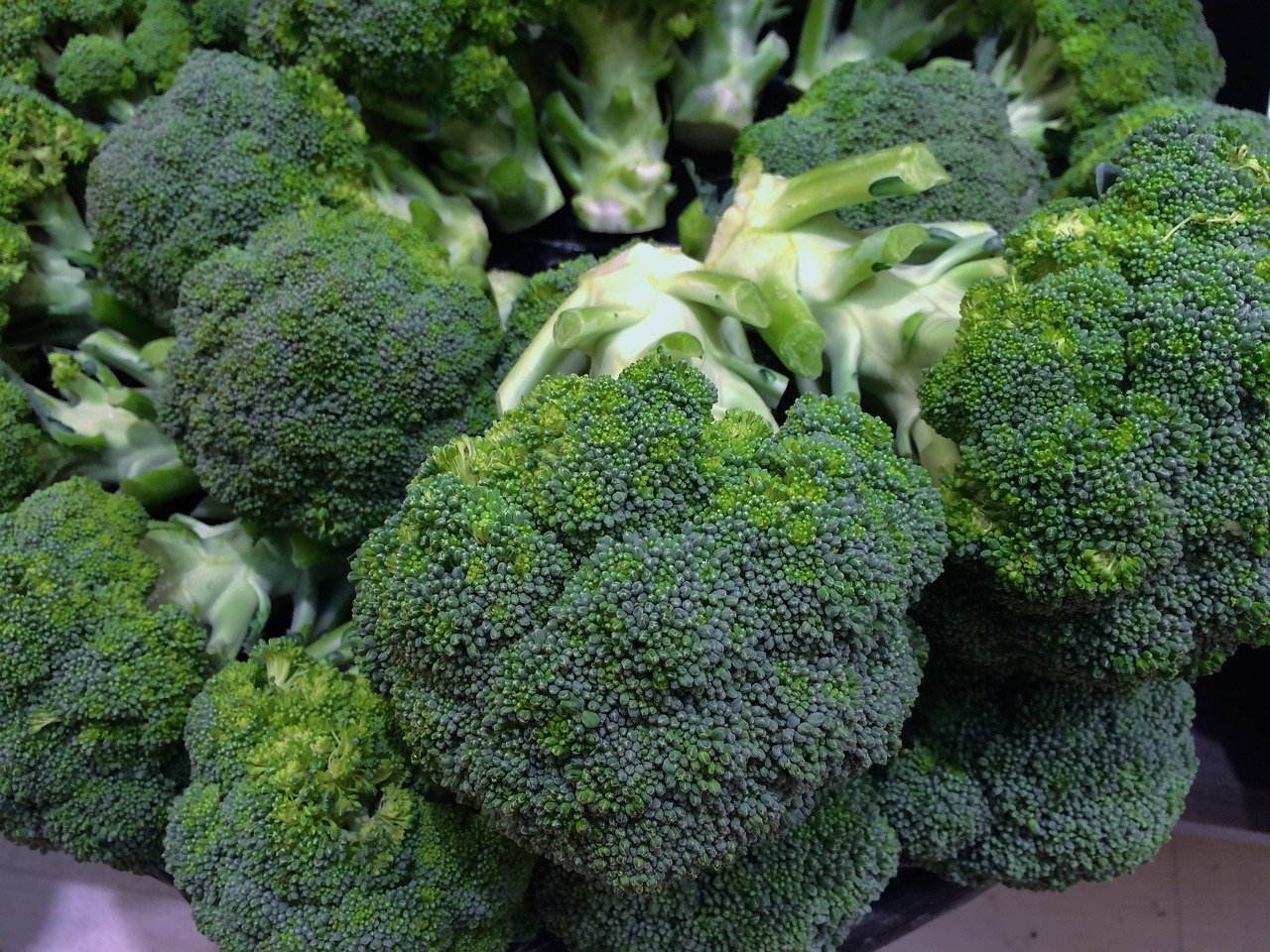BENEFITS
- An excellent source of vitamin C.
![broccoli]()
- Good source of beta carotene and folate .
- Significant amounts of protein, calcium, iron, potassium, and other minerals.
- Rich in glucosinolates, effective natural cancer fighter.
- Low calories and high in fiber.
DRAWBACKS
- Overcooking releases unpleasant-smelling sulphur compounds and may cause gas.
One of our most nutritious and studied vegetables, broccoli’s powerful disease-fighting properties give it the ability to protect against many common cancers. Over the last 20 years numerous studies have found that people who eat an abundance of broccoli have significantly reduced incidence of cancers of the colon, breast, cervix, lungs, prostate, esophagus larynx, and bladder.
While other cruciferous vegetables (members of the cabbage family, whose flowers resemble crosses) are protective, Broccoli seems to have more cancer-fighting compounds.
Some of these block the action of hormones that stimulate tumors, others work by inhibiting tumor growth or by boosting the action of protective enzymes. Broccoli contains glucosinolates, which once ingested, break down into healthful compounds including indoles, sulforaphane and isothiocyanates all of which may be cancer fighters. The most interesting compound is sulforaphane, which shows decided anti-cancer activity in both cultured rat and human cells. Broccoli sprouts are roughly fifty times richer in sulforaphane than mature broccoli. Broccoli is also high in bioflavonoids including quercetin and other phytochemicals that protect cells against mutation and damage from unstable molecules. Broccoli has an abundance of essential vitamins and minerals. A one cup serving of cooked broccoli contains only 44 calories, yet it provides more than 100 percent of the Recommended Dietary Allowance (RDA) of vitamin C. 20 percent of the RDA for folate, and a healthy amount of beta carotene. A cup of broccoli also provides 75 mg of calcium, 12 mg of iron and 5 g of protein. Because 1 cup of cooked broccoli has 3.5 g of fiber and contains natural laxatives, it is often suggested to prevent constipation.
Fresh broccoli is available year round: frozen broccoli is just as nutritious. Florets turning yellow are past their prime and less nutritious.
Broccoli can be eaten raw but most people prefer it cooked. Steaming or stir-frying it until Crispy tender retains the most nutrients. Boiling it in a large amount of water destroys many of the cancer-fighting compounds, vitamin C, and other nutrients.



